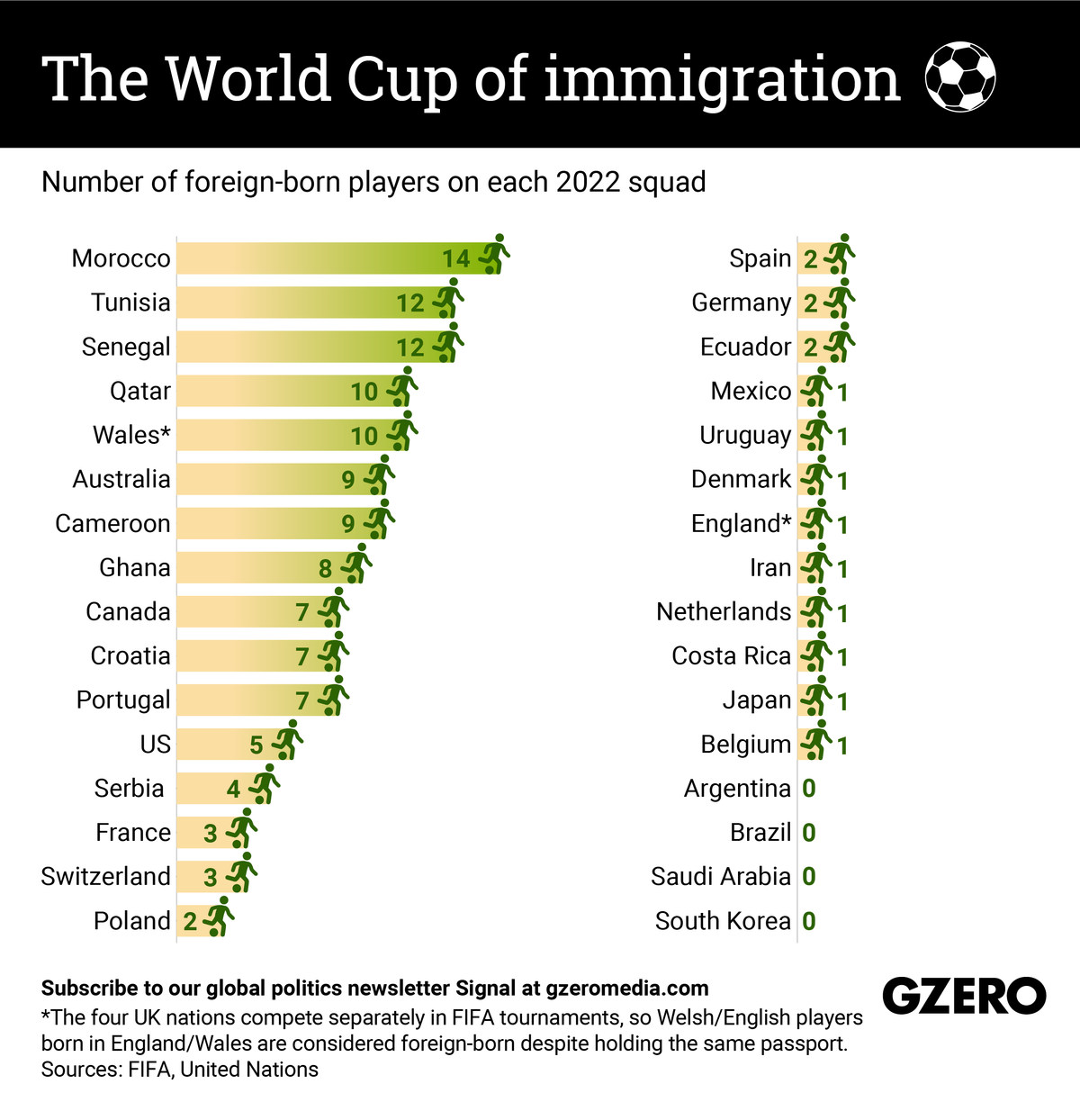If you're a soccer player, your dream is to compete in the World Cup — with whatever country will call you up, whether you were born there or not. About 10% of players in the 2022 edition of the tournament in Qatar are foreign-born.
But this is nothing new. Almost 14% of players in Italy '90 were foreign-born and in the colonial era legends like striker Eusébio from Mozambique defended the colors of Portugal. What's more, when FIFA's eligibility standards were more lax, players were allowed to switch sides. José Altafini won the trophy with his native Brazil in 1958 and four years later didn’t repeat victory because he’d signed up for Italy, his adopted country. Wars matter, too: Robert Prosinecki played for Yugoslavia in 1990 and later for independent Croatia in 1998.
Also, the distribution of foreign-born players in Qatar 2022 is unequal: While half of Morocco's squad was not born in Morocco, four teams — Argentina, Brazil, Saudi Arabia, and South Korea — have no foreign-born players at all. Fun fact: The Williams brothers, both born in Spain, are playing for different countries — the older Iñaki is realizing his grandfather's dream by playing for Ghana, where the family's roots are, while Nico is with La Roja.
We take a look at the number of foreign-born players in World Cup national squads.

















